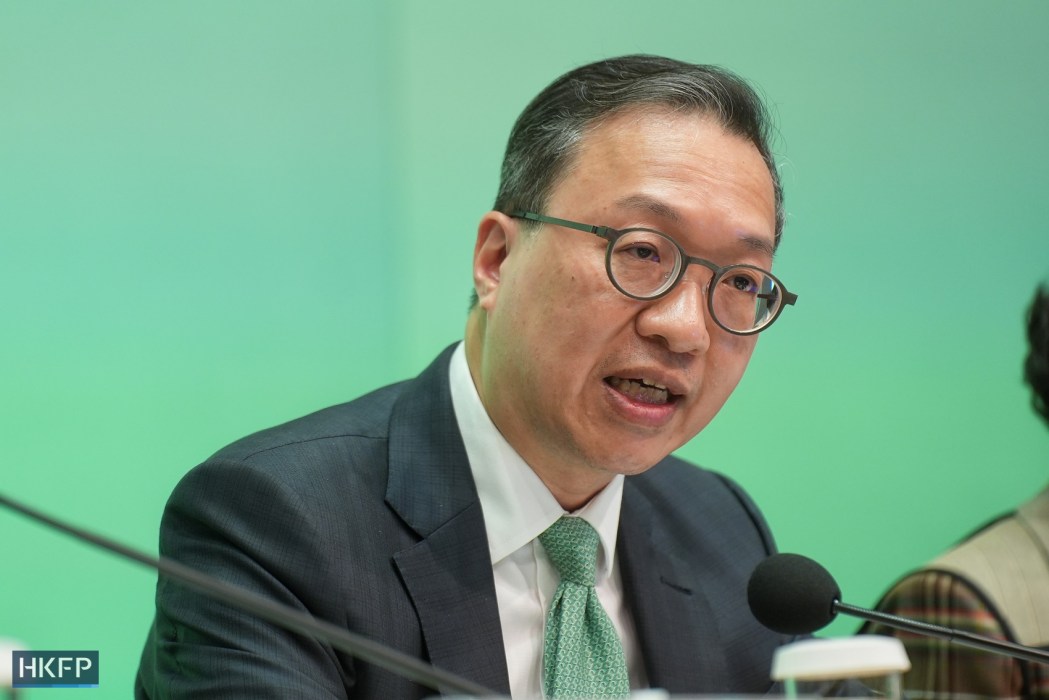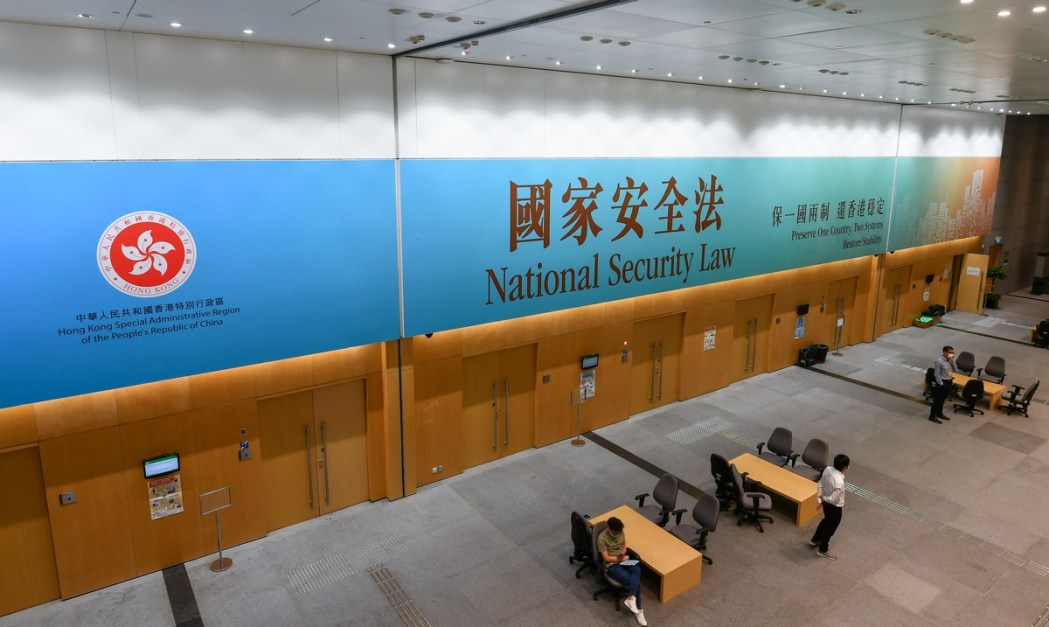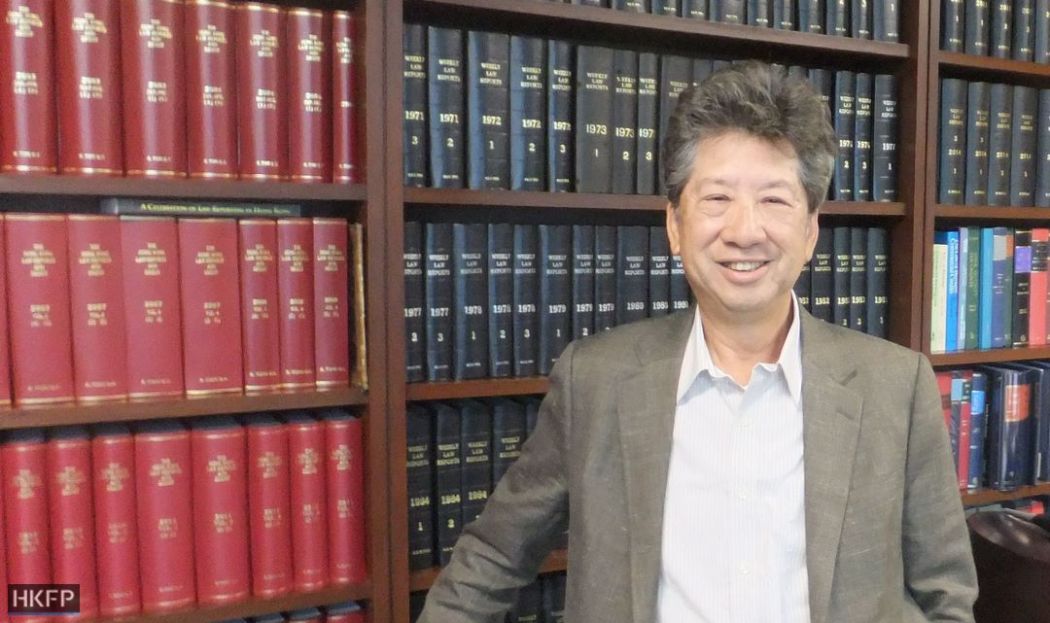Secretary for Justice Paul Lam is very likely to discuss the legislation of Article 23 with the Chinese authorities, he said on Sunday as he set off for his first visit to Beijing since taking office.
“Our constitutional obligation would definitely be touched upon, including [the legislation] of Article 23, which greatly concerns the Central Government and the HKSAR. Therefore, it would be reasonable and natural for our discussion to touch upon this issue. ” Lam said as he met the press at the airport. During a five-day trip, he will visit around 10 Chinese ministries including the Ministry of Justice and the Supreme People’s Court.

When asked about the legislation timeline, Lam said the chief executive, the secretary for security and him all “have a timetable at heart.”
“We definitely hope to complete the legislation within this year, by next year at the latest.”
Lam said he hoped to explore and discuss with different Beijing ministries how the legal systems of mainland China and Hong Kong can better “cooperate.”
Article 23 of the Basic Law stipulates that the government shall enact laws on its own to prohibit acts of treason, secession, sedition and subversion against Beijing. Its legislation failed in 2003 following mass protests and it remained taboo until after the onset of the separate, Beijing-imposed security law in 2020. Pro-democracy advocates fear it could have a negative effect on civil liberties but the authorities say there is a constitutional duty to ratify it.
‘Espionage, disguised organisation’
Following the 2019 protests and unrest, Beijing inserted national security legislation directly into Hong Kong’s mini-constitution – bypassing the local legislature in in June 2020.
While the security law criminalised subversion, secession, collusion with foreign forces – as mentioned in Article 23 – the Hong Kong government has said local legislation is still necessary.

Ex-chief executive Carrie Lam said she hoped to release an initial framework for legislation before her term ended, but nothing was announced before she stepped down last July.
In January, current Chief Executive John Lee, told state-run Hong Kong Commercial Daily that – although an initial plan had been prepared – he requested that the Security Bureau draft a second version of the legislation. Lee said he thought the city needed “cautious safeguarding,” as he claimed that “black rioters” and “foreign forces” had interfered in local affairs.
Lee added that the updated legislation will be focused on “espionage, undercover organisations, as well as new media and new technologies. “
Consultation period
The government should propose a framework for public consultation, but the consultation period should not be long, executive councillor and senior counsel Ronny Tong said on NowTV on Sunday as he discussed the controversial legislation.

“Sorry, this is not a matter of livelihood – [such as] discussions on building how many flats or roads, or the fees for tunnels. It’s about safeguarding some basic rules of national interest,” Tong said. “I am not saying don’t hold any consultation, but the government should maintain some principles during the consultation.”
Tong, as the convener of the pro-Beijing political party Path of Democracy, led a three-day visit to Beijing by the party on May 18-20.
He said the party had good communication with Beijing’s ministries during the visit, and suggested further promoting the Chinese constitution at Hong Kong schools and local universities.
Corrections:
Correction 30.5: A previous version of this article included a missing word in Ronny Tong's quote suggesting he opposed an Article 23 public consultation. We regret the error.
Support HKFP | Policies & Ethics | Error/typo? | Contact Us | Newsletter | Transparency & Annual Report | Apps
Help safeguard press freedom & keep HKFP free for all readers by supporting our team

HKFP has an impartial stance, transparent funding, and balanced coverage guided by an Ethics Code and Corrections Policy.
Support press freedom & help us surpass 1,000 monthly Patrons: 100% independent, governed by an ethics code & not-for-profit.










